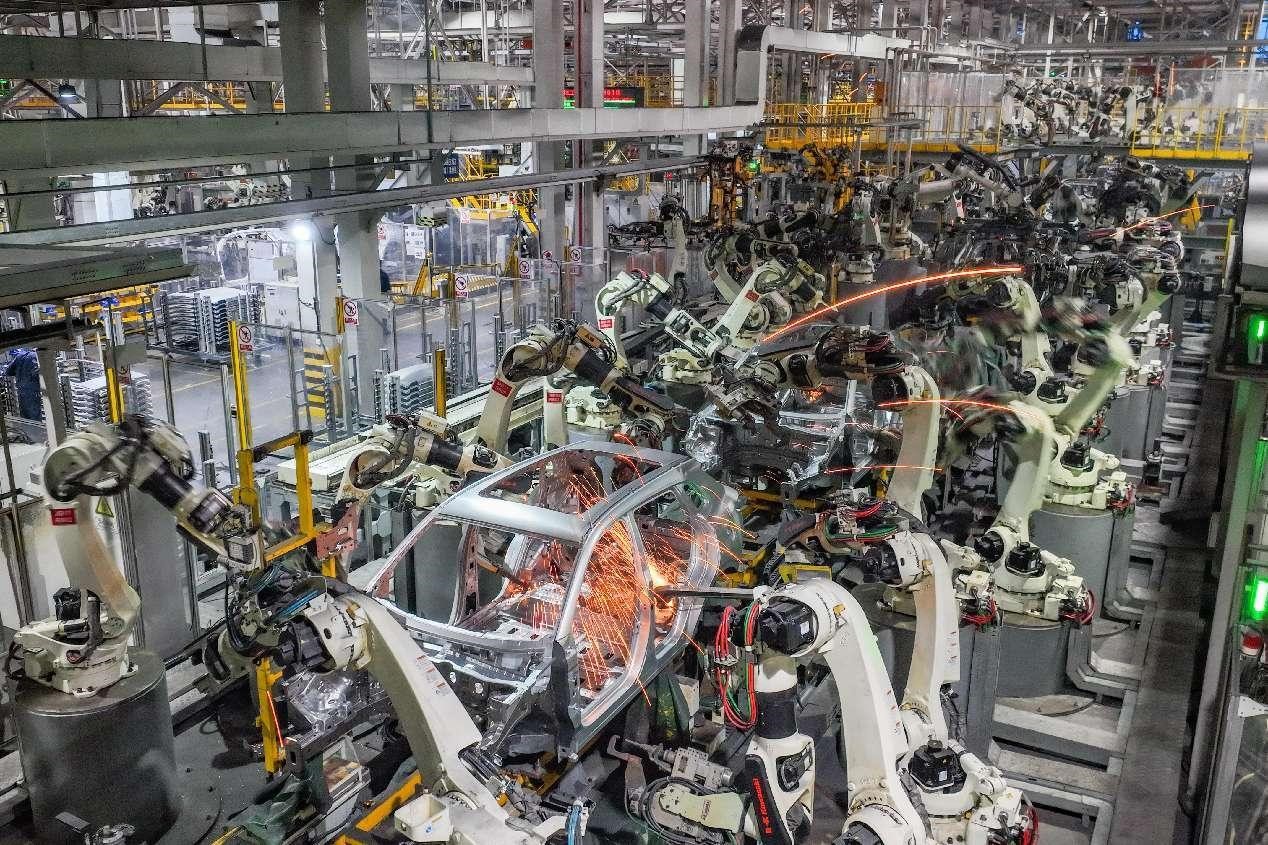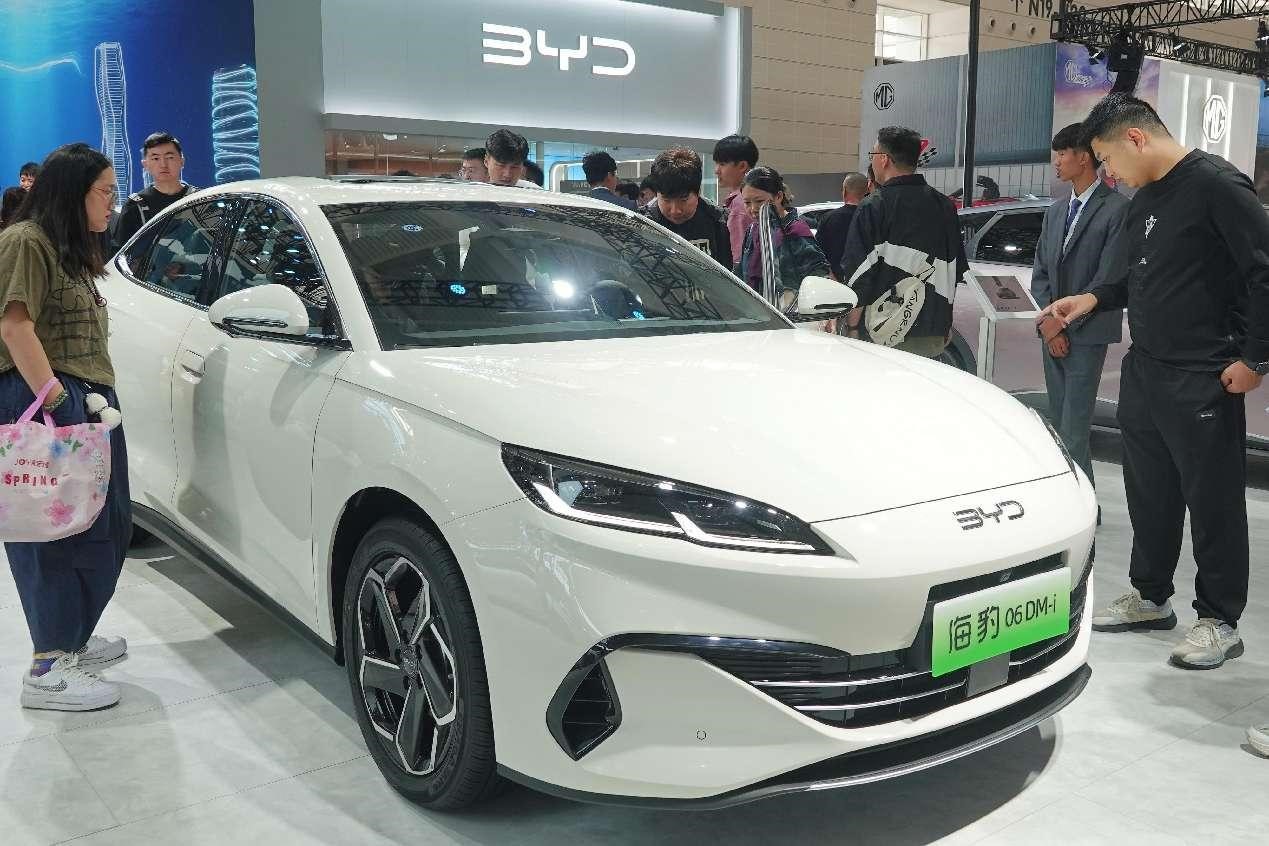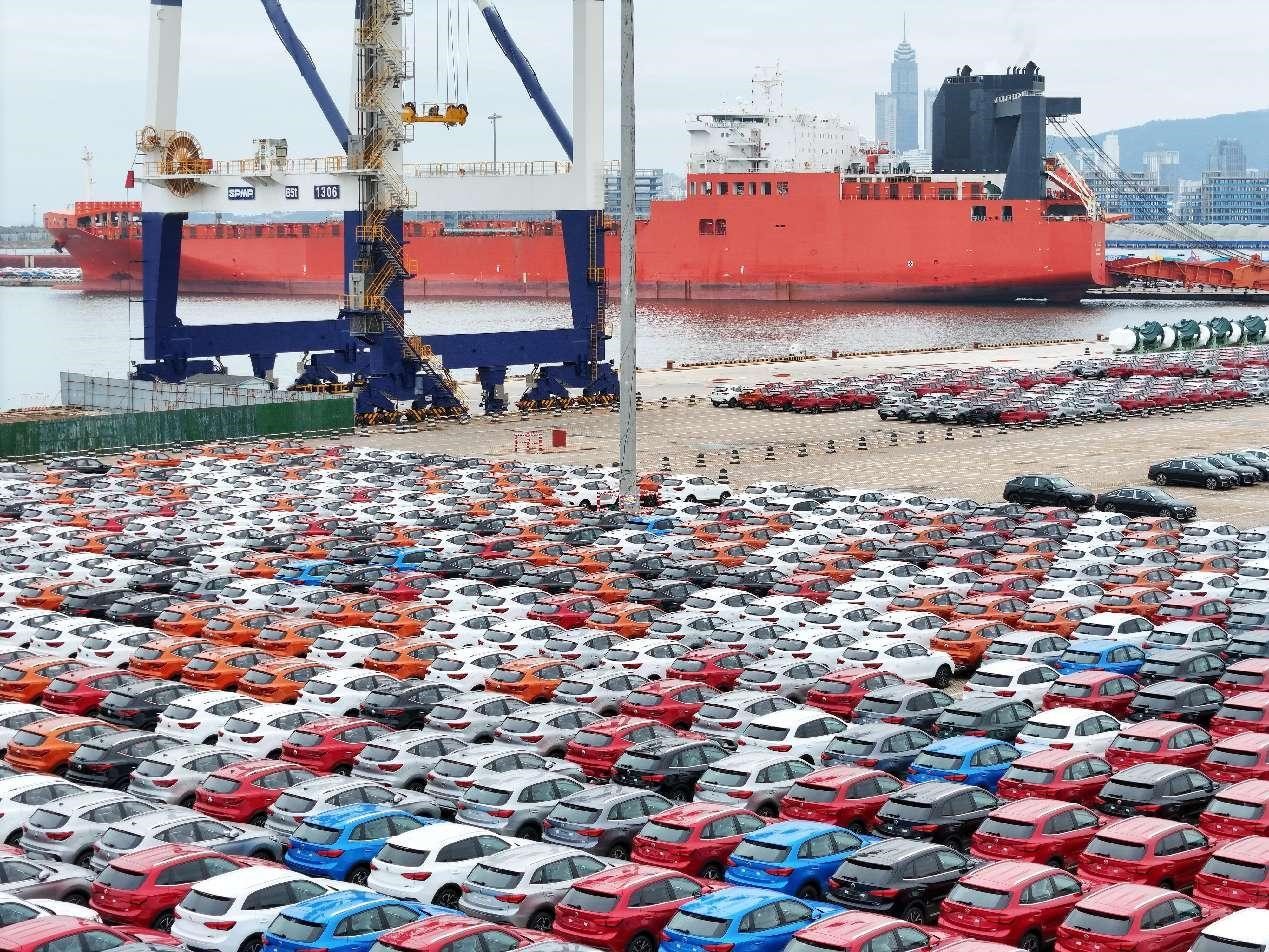Chinese automakers keep investing in R&D
Chinese automakers are enjoying robust growth and rising market shares, as revealed by semi-annual reports recently released by multiple automobile groups.
According to statistics from the China Association of Automobile Manufacturers (CAAM), from January to September, Chinese automakers sold nearly 11.92 million passenger vehicles, up 20.5 percent from a year ago, with a market share of 63.8 percent. Notably, the market share of new energy vehicles manufactured by Chinese automakers exceeded 80 percent.

Robotic arms weld car bodies in a workshop of a plant of Chinese automaker Changan in southwest China's Chongqing municipality. (People's Daily Online/Wang Jiaxi)
Industry experts attribute the rapid rise of Chinese automotive brands to their sustained increase in R&D investment, as it gives them the ability to make technological breakthroughs and deliver innovative products.
BYD is the leading car manufacturer by sales volume in China. It is also the biggest investor in R&D among Chinese automakers. According to statistics, in the first half of this year, BYD's R&D expenditures ranked first among over 5,300 A-share listed companies, amounting to 20.2 billion yuan ($2.84 billion), a 42 percent increase year on year and a record high. This figure was 6.6 billion yuan higher than BYD's net profit during the same period.
New entrants in the automotive market have also shown impressive R&D investments. Li Auto invested over 6 billion yuan in R&D in the first half of the year, marking a 42 percent increase compared to the previous year, while NIO also spent over 6 billion yuan in R&D. Both companies' management teams revealed that they plan to maintain quarterly R&D investments of around 3 billion yuan.
It is noteworthy that in the first half of the year, R&D investments from companies like BYD, Geely, Changan, and Seres exceeded their net profits.
Since 2011, BYD's investment in R&D has surpassed the company's net profits in 13 out of the past 14 years, sometimes reaching several times the amount of net profit in the same period. To date, BYD's cumulative R&D investment has approached 150 billion yuan.
Substantial investments have enabled automotive companies to develop independent R&D capabilities.

A BYD Seal 06 DM-i is exhibited at the 2024 China Motor Show (Tianjin) held in north China's Tianjin municipality, Oct. 3, 2024. (People's Daily Online/Tang Ke)
Currently, BYD employs over 100,000 R&D personnel, making it the carmaker with the largest R&D workforce globally. It has filed more than 48,000 patents and has over 30,000 patents granted.
In the first half of this year, Seres saw a rapid increase in its patent applications and approvals. It filed 1,812 patent applications, including 1,313 invention patents and 300 utility model patents.
Chinese automotive brands are constantly making technological breakthroughs. For instance, BYD's e-platform 3.0 is the world's first intelligent control platform that features a function that integrates and controls independent drive of three motors and rear-wheel steering technology. It combines the advantages of BYD's fifth-generation DM (dual mode) technology and the e-platform 3.0 Evo, enhancing driving experience for users.
Through technological innovation, automotive companies have gained unique competitive advantages. BYD's blade battery marks a significant innovation in the new energy vehicle sector, known for its high safety, high energy density, and long cycle life. Seres' super range-extender system achieves thermal efficiency of 45 percent and a power-to-fuel conversion efficiency of 3.65 kilowatt-hours per liter. In the first quarter of this year, Seres' range-extenders maintained the highest industry adoption rate, and the company has reached cooperation agreements with 12 partners.
The pace of new product launches has also been accelerating. This year, companies like Seres and Changan have introduced multiple new energy products to meet the diverse needs of consumers.
A recent report from the Information Technology and Innovation Foundation, a think tank based in Washington, D.C., revealed that Chinese electric vehicle companies are 30 percent faster than automakers from other countries in developing and launching new models.

Chinese-made vehicles are parked at the Yantai port, east China's Shandong province, waiting to be shipped overseas, Oct. 21, 2024. (People's Daily Online/Tang Ke)
Chinese EV makers offer models for sale for an average of 1.3 years before they are updated or refreshed, compared with 4.2 years for foreign brands.
An executive of Seres said that in the context of increasingly fierce competition in the global automotive industry, independent R&D is a key way for Chinese brands to secure core competitiveness.
Driving industry innovation through technological advancement is particularly important, especially by leveraging cutting-edge technologies to guide the industry toward high-end, intelligent, and green development, the executive added.
An expert said that the emphasis Chinese automakers place on R&D reflects a trend of consumption upgrading in the Chinese automotive market. Consumers are increasingly inclined to choose cost-effective and technologically advanced products manufactured by Chinese carmakers.
In the future, Chinese automotive companies will continue to strengthen their R&D efforts. Currently, BYD's intelligent driving development team comprises nearly 5,000 engineers, and the company plans to invest 100 billion yuan in smart technologies, including generative AI and large models.
By continually enhancing R&D and innovative technologies, Chinese automakers are driving the entire industry toward greater efficiency, environmental sustainability, and intelligence, while also contributing to the sustainable development of the global automotive industry.
Photos
Related Stories
Copyright © 2024 People's Daily Online. All Rights Reserved.









